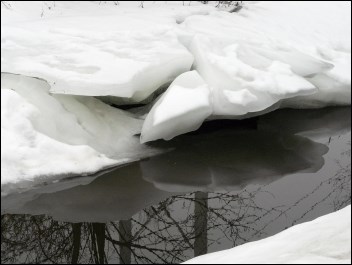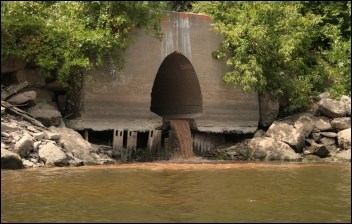
Since the 1970's, the Mississippi National River and Recreation Area (MISS) has been experiencing the subtle effects of climate change. Average temperatures have been slowly rising, especially in winter months, and the number of notable spring and summer storms has increased. Storms are bringing more rain and snow to the area than they used to, with an increase of roughly 20% more precipitation overall. This slow change may not be readily apparent, but it's already causing changes both inside and outside the park boundaries. If the warming trend continues, average temperatures may rise more than 8°F by the end of the century. The rise in temperature and fluctuation in precipitation has the potential to greatly impact the wildlife in our park. Warmer temperatures will make it easier for pests to survive the winter, like mosquitoes and deer ticks (blacklegged ticks), and may increase their numbers. Many native species can only tolerate specific conditions, and will likely be replaced by non-native species that are more adapted to a fluctuating environment. Invasive species may be able to move in at a faster rate as well, temporarily or permanently altering the ecology in our area. Wildlife that is moving northward to escape the heat (such as the Virginia opossum and the white-footed mouse) may travel into the park's boundaries, increasing competition for resources and/or pushing our current wildlife north. 
|
Last updated: August 27, 2021
